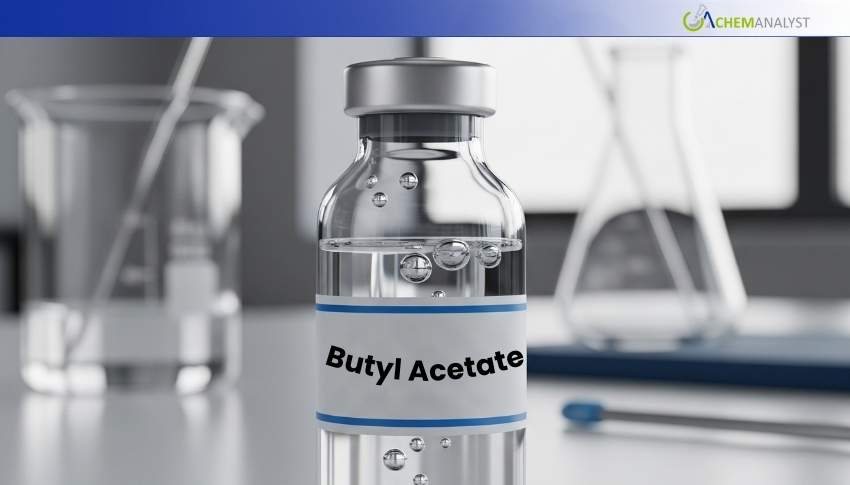Welcome To ChemAnalyst

Butyl acetate market in Germany remained weak through August 2025, with subdued demand from coatings and adhesives and steady feedstock costs offering no production-side support. Domestic output was cautious, aligned with slow-moving demand, while high energy costs squeezed margins. Asian imports, especially from China, added competitive pressure. Construction sector stagnation continued to weigh heavily on demand, while automotive recovery was too modest to offset broader softness. Buyers favoured spot deals amid economic uncertainty. Export flows stayed limited, and international sales were hampered by high freight costs. Looking ahead, prices are likely to remain under pressure unless construction rebounds or Eurozone demand improves.
Butyl acetate prices in Germany dropped by the end of August xxxx. The butyl acetate market activity was subdued where the prices of feedstocks like acetic acid and n-butanol held steady, leading no additional cost support from the production side, and demand from coatings and adhesives remained lacklustre. In other words, even though producers managed inventories well and kept output in check, prices still slid on the weaker side.
Domestic Butyl acetate production stayed steady but cautious, with suppliers matching output to slow-moving demand. High energy costs persisted, but not enough to counteract shrinking margins. Producer were forced to sell stocks at cheaper prices in order to maintain purchasing activity. Imports from Asia, especially China, continued to put pressure on the market, as Chinese butyl acetate prices stayed in a tight range. The prices of upstream acetic acid were stable which...
We use cookies to deliver the best possible experience on our website. To learn more, visit our Privacy Policy. By continuing to use this site or by closing this box, you consent to our use of cookies. More info.
